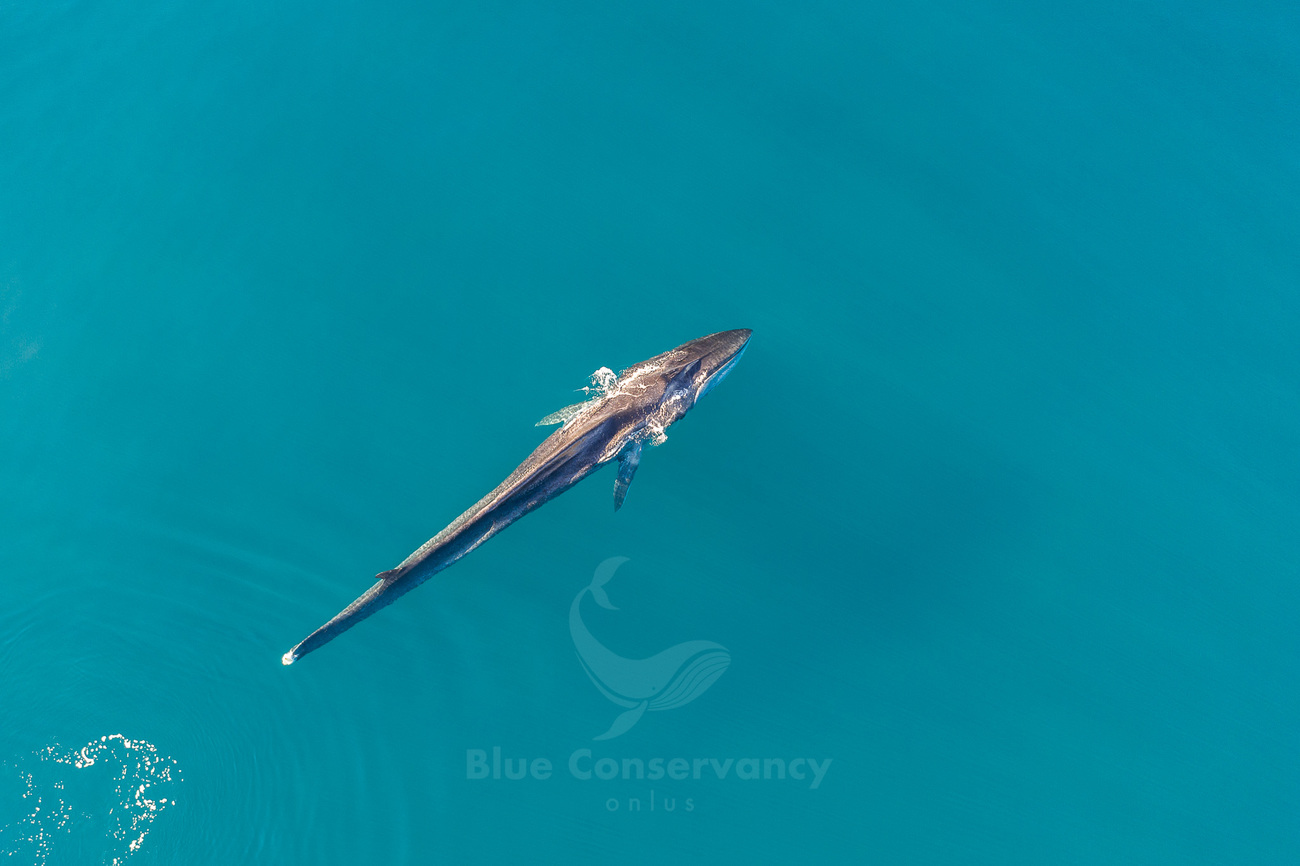Blog
Long’uro: one elephant’s story of immense resilience
Read morewounded fin whale dying a slow death

(Hamburg – 18 June 2020) – Shocking images of a fin whale with amputated tail flukes have been released following a recent sighting by mariners off the west coast of Greece, in the Myrtoan Sea, and then in the Strait of Messina, Italy. Experts agree it is likely the whale lost its flukes either through an entanglement with fishing lines or by a ‘ship strike’, with a ship propeller cutting off at least one of the flukes.
"It is amazing and agonizing to learn this whale has made an odyssey from Greece to Sicily without flukes”, says Sharon Livermore, Marine Conservation expert at IFAW (International Fund for Animal Welfare). "This animal must be suffering tremendously and human activities in the ocean are the cause of this horrific injury. The tail flukes are critical for whales to propel themselves through the water. It will be a huge challenge for this individual to dive, feed and travel. As emaciated as this wounded whale is, it is unlikely to survive much longer."
From the pictures and video available, experts suggest that this fin whale could have lost its tail flukes some time ago in the Mediterranean Sea.
"There are far too many cases of whale entanglements and ship strikes”, continues Livermore. "We were made aware of this particular case by our colleagues at the Pelagos Cetacean Research Institute in Greece and several other groups including MareCamp, Blue Conservancy and Tethys have spotted this animal in different locations in the Mediterranean. Injuries by entanglement are often severe and cause extreme suffering to the whale. In many cases, the entanglement will lead to an eventual death through either starvation or infection, as we are seeing with this poor fin whale. For some whale species, like the North Atlantic right whale, entanglement in fishing gear threatens the very survival the population. The plight of this fin whale highlights the consequences of two visible threats to whales - entanglement with fishing gear and collisions with ships.”
One hotspot for ship strikes is the Hellenic Trench, just southwest of Greece, and the fin whale without flukes was originally spotted not far from this area, in the Myrtoan Sea. Overlap with critical whale habitat, increasing ship traffic and increasing ship speeds are all linked to the prevalence of ship strikes and associated injuries and deaths. Critically, the speed a ship is travelling when it strikes a whale is directly linked to the severity of the injury a whale will sustain.
Entanglement in fishing gear is another serious threat. Fishing ropes are often found running through the mouths of whales, or wrapped around their flukes or tail, impairing their ability move freely and to feed. Rope wrapped around the tail or other extremities can cut off the blood supply and will gradually cause that body part to die and fall off, as was probably the case with this fin whale.
"Injuries like these do not have to happen. There are ready solutions to both threats,” explains Livermore. "Slowing ships down by 10 percent worldwide reduces reduce the risk of a whale being hit by as much as 50 percent. Also, where it is possible to move shipping lanes away from critical whale habitat, this should be a priority. Entanglement can be prevented by less rope in the water overall and rope that sinks to the seabed rather than floating. Technological solutions for so-called 'ropeless' fishing are also being developed. These measures are being trialed in collaboration with fishers in Scotland and North America."
Fin whales are the second largest mammal on earth after the blue whale, growing to 25 m in length. A subpopulation of between 3,500 and 5,000 lives in the Mediterranean. Fin whales are classified as Vulnerable by the IUCN. Fin whales are considered fast swimmers and mainly feed on krill, small schooling fish and squid
For more information or to arrange interviews please contact:
Andreas Dinkelmeyer on mobile +49 173 622 75 39 or email adinkelmeyer@ifaw.org.
Our work can’t get done without you. Please give what you can to help animals thrive.
Unfortunately, the browser you use is outdated and does not allow you to display the site correctly. Please install any of the modern browsers, for example:
Google Chrome Firefox Safari